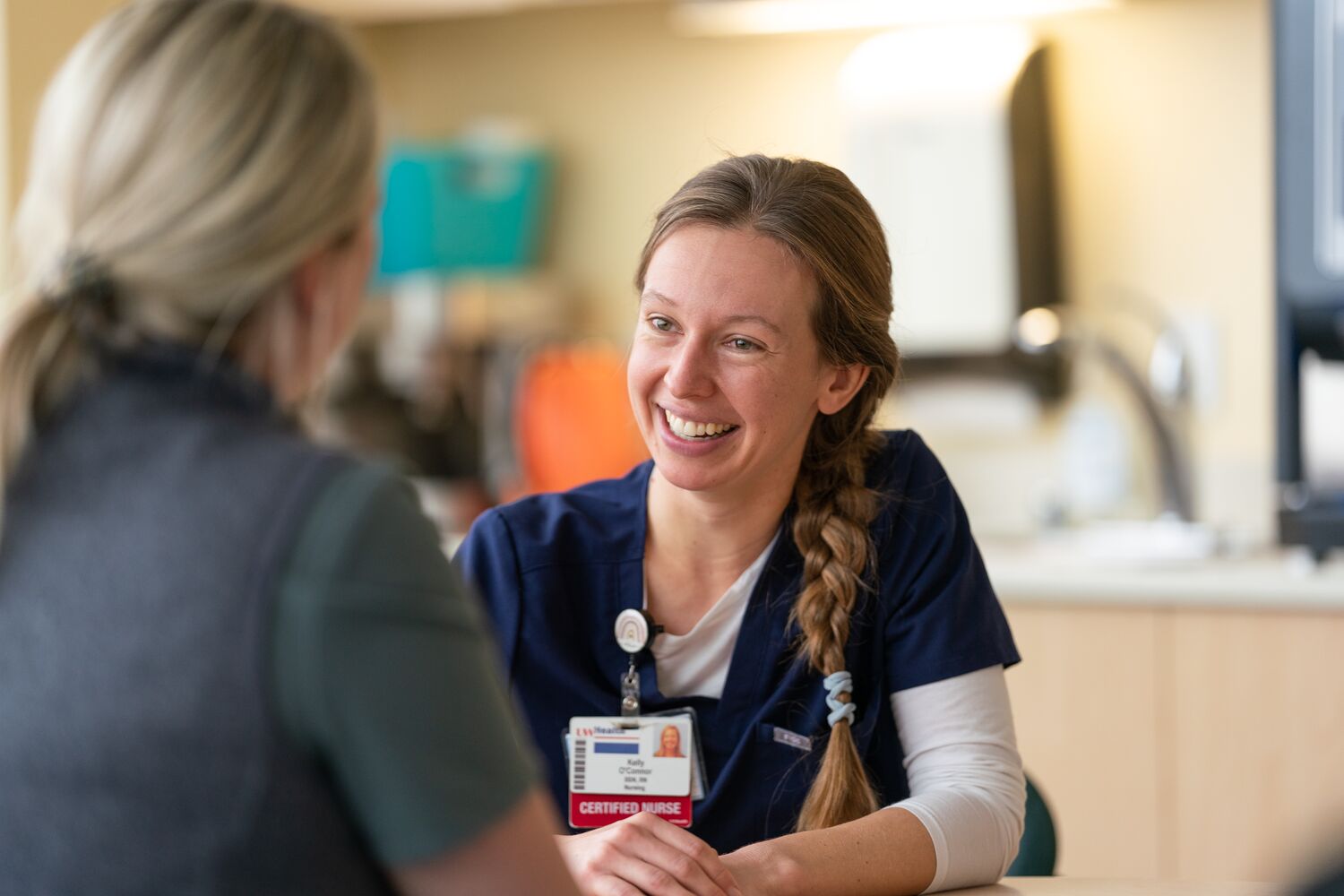Evidence-based mentorship program

In 2015, when Kelly O’Connor, BSN, RN, CPN, started working at American Family Children’s Hospital, she noticed some personal challenges.
“It was really difficult to transition from being a student nurse to a new-to-practice nurse,” Kelly said. “As a student, you receive a lot of support. As a new nurse, there is a gap period after orientation with your preceptor until you feel confident on your own. You may feel alone and don’t yet have those authentic connections with other nurses for support.”
Kelly thought it was just her, until she started seeing those same challenges with other new nurses.
Knowing this may be more than a coincidence, Kelly did some research. It turns out, those common experiences of fear, disillusionment and overall stress felt by new-to-practice nurses are real and described as transition shock.
“I learned that transitioning into nursing is often traumatic, and new nurses may be fearful at work throughout their first year,” Kelly said.
She also found that there were distinct developmental stages that new-to-practice nurses went through, and that nurse mentorship programs helped ease those transitions.
With her research in mind, Kelly approached Élise Arsenault Knudsen, PhD, RN, ACNS-BC, nurse scientist who leads the Nursing Research and Evidence-Based Practice (EBP) Programs, about starting an EBP project focused on supporting new-to-practice nurses in her unit.
“To help retain new, bright nurses, we need to develop a culture that accepts and embraces them,” Kelly said. “A mentorship program is a first step in creating a positive loop: New nurses who are accepted, appreciated and guided will eventually offer the same acceptance, appreciation and guidance to new nurses who come after them.”
In 2022, Tessa Martin, BSN, RN, CPN, nurse manager of the Pediatric Medical/Surgical Unit where Kelly currently works, made the decision to include the mentorship program in the onboarding process for all new nurses on the unit. After the initial 14-week orientation where nurses are paired with a preceptor to learn the ropes, the new nurses are matched with an experienced frontline nurse mentor. For the next seven months, in addition to support on the unit, mentors and mentees meet outside of work for one hour each month to informally discuss any fears, concerns or highlights the new nurse wants to share.
Furthermore, Kelly created mentorship resources and worked with Tessa to distribute information about the program to staff and nurse residents.
“In addition to the mentor/mentee relationships, we created a visual management board in our conference room that staff can reference at any time,” Tessa said. “We also posted the new nurse development stages that Kelly identified through her research and have our mentor/mentee pairs printed on cards to show their progress through the stages.”
“The mentorship program has become incredibly successful. Our job is really hard, and this program helps acknowledge those feelings and supports new graduates through those evidence-based struggles.”

Check out more stories featuring the great work of our nurses in the 2022 Nursing Annual Report (pdf).
